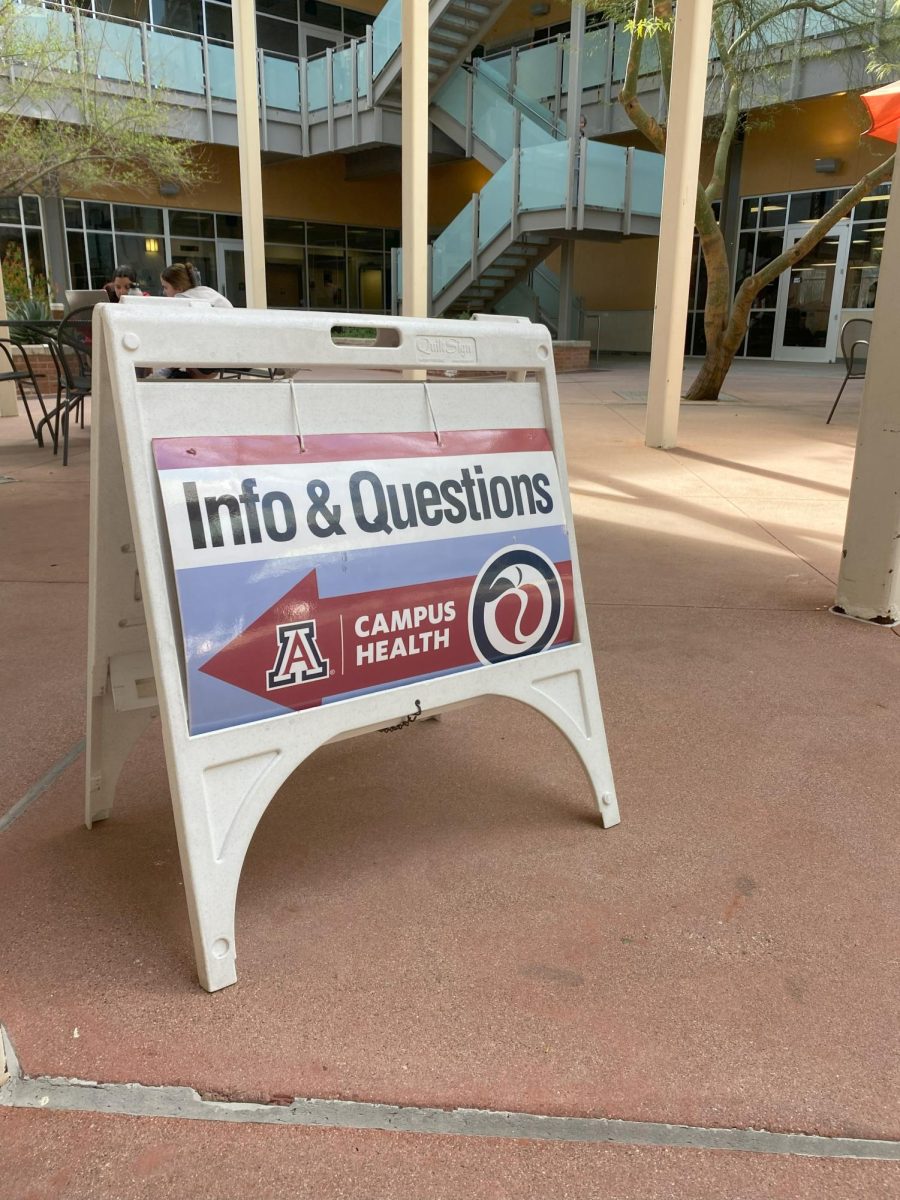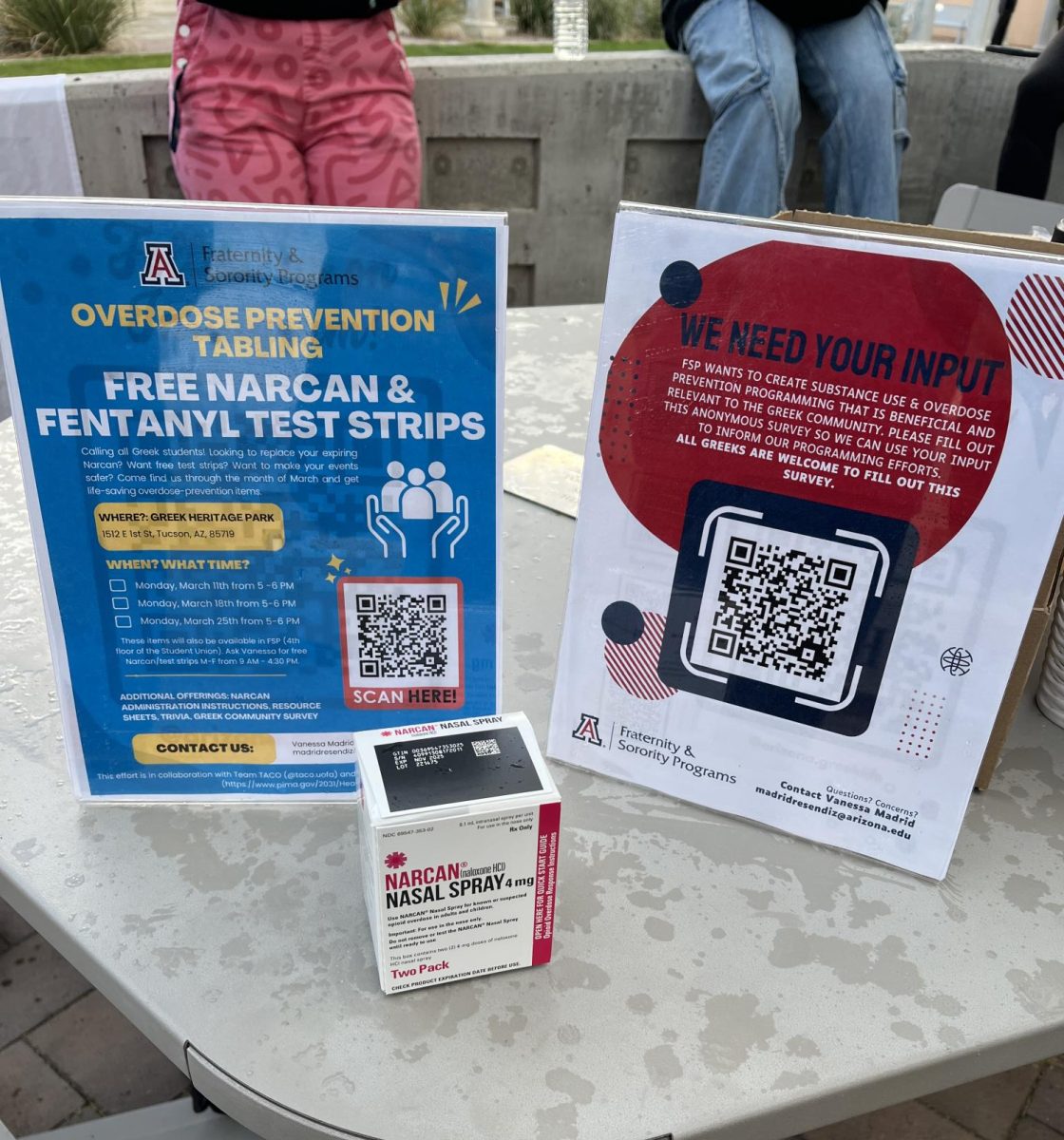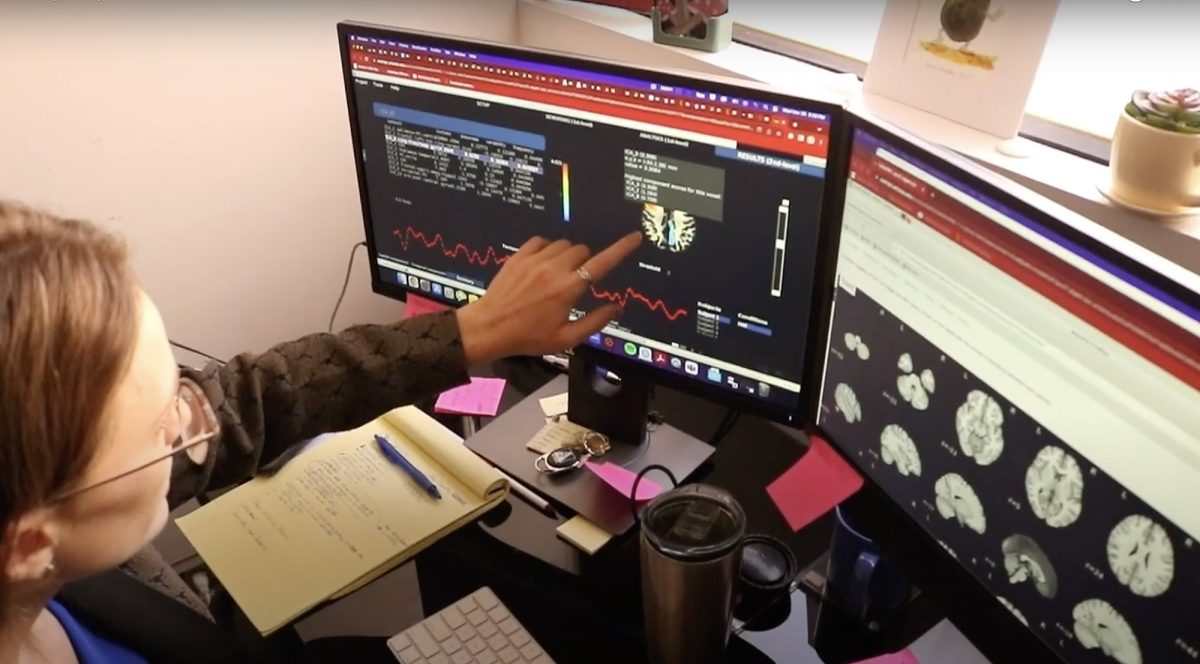UA students are getting less sleep, but exercising more according to results of the 2023 Health and Wellness survey. The survey also showed that nearly a third of UA students report having experienced disordered eating.
The 2023 survey posed questions including how body image impacts quality of life; how often students wake up feeling rested; and whether students consider themselves physically active.
Nutrition/body image and sleep/physical activity are two of six topics that were included in the 2023 survey, as well as some of the most important aspects of student’s overall health.
The survey, which has been around in different iterations for over three decades, was created to understand what health-related issues students are having and what resources Campus Health needs to be providing.
“Each year the purpose really is for us to get an idea of what’s going on with our students and what can we, as Campus Health, do to better support the needs of our students,” said Ryley Tegler, a health educator at Campus Health. “What information can we share with the rest of campus to help them better understand and support the health and wellness needs of students.”
Health educator Amaya Amiebelin said that the survey also gives Campus Health the information it needs to tailor programming and resources to best fit students.
“A lot of people think that Campus Health is pretty much just a mini urgent care clinic, but in reality we’re kind of like a hidden gem that students don’t really acknowledge,” Amiebelin said. “Our goal is to give students a new perspective of Campus Health and let them know that it’s not just the clinic that they see.”
Sleep
Though college is not known for being a time of significantly great sleep for students, sleep is still an essential part of human health and wellness. In 2023, the average UA student only felt they got three days of sleep a week where they woke up feeling rested.
Tegler said that sleep is always an issue for college kids, but it has become a bigger issue in the past decade, to the point where poor sleep has become the norm.
Campus Health is not just looking at changes in health trends but also the causes of these changes. One big reason: cell phone use and social media.
“You can scroll in bed, it can wake you up when you get a notification. If you’re using the light before bed, it messes with your circadian rhythms,” Tegler said.
In addition to phone time at night, she cited phone use during the day as a distraction that causes students to be less productive, forcing them to stay up later to finish school work.
Alcohol and cannabis use also impacts students’ ability to get quality sleep, but caffeine is another substance that makes big differences.
“We know that you’ve got to stop drinking caffeine like six hours before you want to go to sleep,” Tegler said. “If I had caffeine at 2, 3, 4 p.m., I’m still going to feel wired and not ready to go to bed. And so that’s going to impact my ability to sleep as well.”
Physical Health
Though the survey found that students’ views about the state of their physical health are similar to last year, in 2023 students considered themselves less active even though they were performing intentional exercise more frequently.
In 2022, 62.7% of UA students considered themselves to be physically active; in 2023, that number dropped to 56.3%. Even as students were reporting that they performed intentional exercise 3.34 days a week compared to 3.01 days in 2022.
These shifts show that student’s views of what defines “physically active” are changing.
Tegler views social media as part of the reason for this change.
“With the rise of influencers who particularly do physical activity influencing, I think that people getting their information there may feel like they’re not doing enough, they’re not as invested in this as the people they’re following on social media,” Tegler said.
“I like to consider myself active but always catch myself thinking ‘other people do more,’” said Sage Liu, a senior who has been working out at campus rec since she first started at the UA.

Sage Liu, a senior, works out at South Rec, which she has been frequenting since her freshman year.
“It’s definitely been harder to feel confident in the gym or feel healthy because of comparing myself to others and different styles of exercise on social media,” she said.
Tegler explained that there are many ways to be active, and it may not all fit what is seen on social media.
“Riding your bike around campus or taking a daily stroll to the turtle pond or even using some of the campus rec trips and equipment to go camping and hiking, that counts as physical activity, too,” she said.
“All of our bodies are different. The needs that we have for nutrition, the needs that we have for exercise, the things that we enjoy are all going to be different and there’s no one plan that’s going to work for everybody,” Tegler said.
Nutrition/Body Image
Lisa MacDonald, a nutrition services manager at Campus Health, said that the nutrition/body image portion of the Health and Wellness Survey has not always looked the same. While it used to ask questions such as how many days a week do you eat five fruits and vegetables, the survey now leans less into diet culture and more into body image and disordered eating habits.
“We want to make sure we have a pulse on what’s happening with our students and what their needs are,” she said.
MacDonald said that the survey results she’s seen throughout her past six years with Campus Health have shocked her and shown her how many students are struggling and not getting help.
Some 37% of students said that in the past year they have at times felt so focused on food, weight and/or body image that it negatively affected their quality of life while 62% of students said that in the past year their weight has impacted how they feel about themselves. More than 30% of students said that in the past year they have or are currently suffering from disordered eating. And 43.5% of students said that in the past year, comparing their food or body to things they saw on social media negatively affected their mental wellbeing.

Almost a third of University of Arizona students, many of whom dine at the Student Union, reported suffering from disordered eating in 2023.
Overall, the nutrition/body image section has slightly better numbers than last year, but not a significant improvement.
“I’d like to think it’s because people are becoming more weight inclusive and neutral, but that’s hopeful thinking,” MacDonald said.
Eating disorders in university students rose nationally by 20% for women and 18.3% for men during the COVID-19 pandemic, according to MacDonald. She said the small decline in disordered eating and poor body image on the UA campus in the 2023 survey could also be attributed to things evening out since the pandemic.
Food insecurity also can lead to disordered eating habits. The 2023 survey showed that 21% of students who responded said they had gone hungry in the past year because they didn’t have money for food.
“When there’s food scarcity, for some people that means there’s a need to hoard or binge eat because they don’t know where the next food is coming,” MacDonald said. “Or sometimes there’s a lot of guilt around eating when there’s not enough food and that can lead to restriction.”
The survey results have helped Campus Health develop programming and resources to help students with body image and nutrition problems.
“A lot of students don’t know a lot of the resources available to them,” Amiebelin said, adding that getting help through Campus Health isn’t “one size fits all” and students should try things out until they get what they need.
“Our message is try and go ahead and keep a positive mindset of trial and error so you have a toolbox set up where you know what you like and you know what works for you,” she said.
To view the data from the 2023 Health and Wellness survey visit the Campus Health website.
Arizona Sonoran News is a news service at the University of Arizona.












